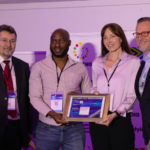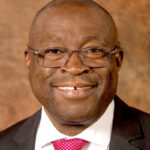Empowering women by giving them opportunities to become economically independent is key to tackling Gender-based Violence and Femicide (GBVF) in the country, says Minister in the Presidency for Women, Youth and Persons with Disabilities, Maite Nkoana-Mashabane.
“The biggest challenge for women is economic power. Let’s expose them to opportunities to generate their own income so they can walk away from abusive relationships,” Minister Nkoana-Mashabane said on Friday.
The Minister was addressing the launch of the 16 Days of Activism for No Violence Against Women and Children Campaign at the Johannesburg Expo Centre, which took place under theme “Socio-Economic Rights and Empowerment to build Women’s Resilience against Gender-Based Violence and Femicide: Connect, Collaborate, Contract!”.
“The call for the economic empowerment of women cannot be separated from the broader call for a violence-free South Africa. Both need to be met with urgency.
“The scourge of gender-based violence and femicide continues to undermine our efforts of building a democratic, non-racial, non-sexist, and united South Africa,” the Minister said.
She said at the centre of government’s response to GBVF, is to tackle the drivers of violence in our communities.
This includes challenging the socio-economic status of women and other vulnerable groups including the youth, persons with disabilities and LGBTQIA+ persons.
“Inclusive economic empowerment remains a key priority of the government and it is a central tenet to ensuring a more equal society for all.
“Therefore, the theme for this year’s 16 Days of Activism aims to strengthen programmatic approaches to accelerate the social and economic empowerment of women.
“Our intention throughout the year has been to make the linkages between building women’s resilience through socio economic empowerment and its influence in decreasing women and children’s vulnerability to forms of violence including GBVF.
“Ultimately, we are saying that walking away from an abusive situation, must not lead women and children into poverty,” the Minister said.
Government used the launch to gather women in business across different sectors, including women’s Small, Medium and Micro Enterprises (SMMEs), cooperatives and women informal traders.
“The rights of women to dignity, security, safety and protection is non-negotiable. We need to collaborate on developing, implementing, supporting and monitoring programs for equitable job creation, representation and ownership by women.
“This includes strengthening the public-private sector partnerships to facilitate economic opportunities for women. In addition, we must accelerate initiatives to empower our women who work the land,” the Minister said.
She reiterated calls for land redistribution and agrarian reform.
This includes funding women farmers to drive transformation deliverables through broadening ownership of SMMEs led by women, youth and persons with disabilities to build and capacitate entrepreneurship and economic resilience.
Women’s Economic Assembly
Nkoana-Mashabane said the Women’s Economic Assembly (WECONA) continues to empower women economically.
“WECONA continues to mobilize and establish the public-private sector partnerships to enable women owned enterprises to participate in procurement opportunities within industry supply chains.
“WECONA has engaged with key sectors to advocate and negotiate for the establishment of transformation targets and actions,” the Minister said.
These sectors include Agriculture, Steel, Energy, Poultry, Textiles, FMCG, Automotive, Finance, Transport & Logistics, Tourism, ICT, Mining, Infrastructure, and the Green Economy.
“In addition, WECONA has been instrumental in driving advocacy and accountability in the implementation of the 40% preferential procurement in the public sector towards women owned businesses,” the Minister said.
WECONA co-chairperson Namhla Mniki said her organization will continue to work for and fight for the economic empowerment of women.
WECONA is a critical vehicle to addressing women’s unequal economic and social position, through access to government and private sector procurement, employment, housing, access to land, financial resources and other income generating initiatives.
“We recognize that the less empowered we are as women economically, the less it becomes impossible for us to leave abusive relationship.
“The indignity of poverty and the indignity of economic exclusion leads to increased vulnerability generally not just to GBV. We are less resilient to economic shocks, we are less resilient if some is sick in our home, we don’t have the capacity to deal with that,” Mniki said.
She said WECONA is working on a bold and radical programme that promotes women empowerment.
“Women must claim economic power and the economy must create the opportunities for women to own their economic power, ownership to land, ownership to manufacturing infrastructure, ownership and access to financing so that we can become business owners,” Mniki said.












